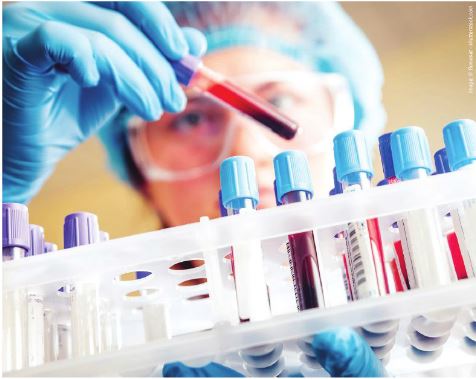
New personalised molecular blood test could shake up cancer treatment
pharmafile | August 16, 2017 | News story | Research and Development | Cancer, life sciences, medicine, pharma, pharmaceutical, standford university
A team of researchers at Stanford University have engineered a new, highly-sensitive molecular test to detect and monitor cancer which can identify genetic mutations within tiny quantities of DNA released into the blood by tumours, and can be personalised to recognise mutations in unique instances of cancer.
Single colour digital PCR, as the test is known, can operate using only a very small amount of blood and has the precision to detect as few as three mutation-bearing molecules in one reaction. The test can offer more accurate results than similar methods which rely on pre-amplification, and promises to be easier and cheaper to implement.
“This test is simple enough to set up and analyse without extensive training, and therefore, it can be implemented by anyone, making it highly accessible to any laboratory,” added lead author and researcher Christina Wood Bouwens, of the Stanford Genome Technology Center and the Division of Oncology, Department of Medicine at Stanford University School of Medicine.
The test’s use has been documented in a report after it was applied to samples from six patients, five of whom has been previously diagnosed with colorectal cancer; the remaining patient had been diagnosed with cholangiocarcinoma. The team generated custom mutation detection assays, and from that were able to identify DNA in the blood which had originated from tumours in three of the patients. In one of these patients, this enabled the identification of three different mutations. While elevated cancer DNA could not be found in the remaining three patients’ samples, this could be due to the fact that they were undergoing active treatment at the time of collection.
“For monitoring patient tumours, only a handful of blood tests are available which are limited to only several types of cancers. Nearly all cancer patients require monitoring by whole body imaging, which can be costly, complex, and time-consuming,” explained lead investigator Hanlee P Ji, Associate Professor in the Department of Medicine at Stanford University and Senior Associate Director of the Stanford Genome Technology Center. “In contrast, molecular tests like the one we have developed will enable patients to be monitored at every visit, and thus have the potential for quickly tracking cancer growth and spread. Moreover, the test’s rapid turnaround and relatively low cost, especially compared to next-generation DNA sequencing, provide a potential opportunity for universal monitoring of more patients than is currently done.”
Matt Fellows
Related Content

Geneos Therapeutics shares data from phase 1/2 trial for cancer vaccine
Geneos Therapeutics has announced that it has published positive safety, immunogenicity and efficacy data from …

Curve Therapeutics’ CSO publishes research on HIF inhibition for cancer treatment
Curve Therapeutics has announced that its chief scientific officer, Professor Ali Tavassoli has published research …

Verastem Oncology gains Fast Track Designation for combination NSCLC treatment
Verastem Oncology has announced that the US Food and Drug Administration (FDA) has granted Fast …








